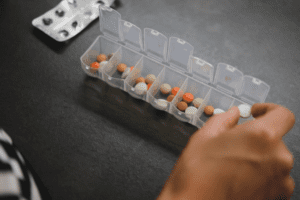When your kidneys cannot properly filter blood due to some injury or disease, they require dialysis – a procedure that performs the function of the kidneys through a machine.
Normally, kidneys purify the blood, removing excess waste and eliminating it from the body.
However, 14% of people in the US have chronic kidney disease. Losing 85% to 90% of your kidney function depicts you would require dialysis to regulate the levels of minerals and water in the body.
Living with dialysis requires a careful balance of self-care and medical treatment. Let’s take a look at the essential home care tips for dialysis patients at home.
What Exactly Is a Dialysis?
A healthy kidney can filter around 120 to 150 quarts of blood every day. If the kidneys aren’t functioning properly, waste can start to accumulate in the blood, which may eventually lead to death or a coma.
The dialysis process can prevent this from happening. This procedure can effectively remove toxins and waste material from the blood and prevent them from reaching hazardous levels.
Home Care For Dialysis Patients
1. Maintaining the Dialysis Equipment
One major aspect of looking after dialysis patients is to ensure their dialysis equipment is fully functional and well-maintained. Properly maintaining these devices is critical to ensure the treatment is carried out properly without any complications.
You will need to regularly clean and disinfect the machine following the manufacturer’s guidelines. Additionally, schedule routine inspections by a qualified technician to identify any issues early on so you can troubleshoot them beforehand.
2. Dietary Management is a Must
Secondly, a dialysis patient requires a nutritious and well-balanced diet. This is necessary to support their overall health and recovery. Since dialysis eliminates waste and excess fluids from the patient’s body, some dietary restrictions are required to prevent complications like electrolyte imbalances, fluid overload, and malnutrition.
You will need to work closely with a knowledgeable dietician to craft an individualized meal plan to determine what the patient needs to eat. Monitor portion sizes and limit high-potassium and high-phosphorus foods to maintain optimal levels within the body.
3. Medication Management

People with kidney disease often take multiple medications to manage their health condition. This is why adhering to a medication schedule with dosage instructions is important to control the symptoms and slow the disease progression.
Keep an updated list of the medication and regularly review it with a healthcare provider to avoid potential drug interactions. You can also consider using pill organizers and medication reminder apps to stay organized and have timely doses.
Looking to learn more about kidney disease diagnosis and how to care for dialysis patients? Check out Zuleta Corp DBA Dialysis Champions, where you will find comprehensive and well-written guides written by certified nephrology nurses in Queens, NY. Our handbooks on dialysis therapy are a wonderful guide for caretakers and students who want to get more insight into how kidney diseases and dialysis can impact the lifestyle of a patient. They’re also useful resources for health-conscious individuals and dialysis patients.
Contact us now for more details.

